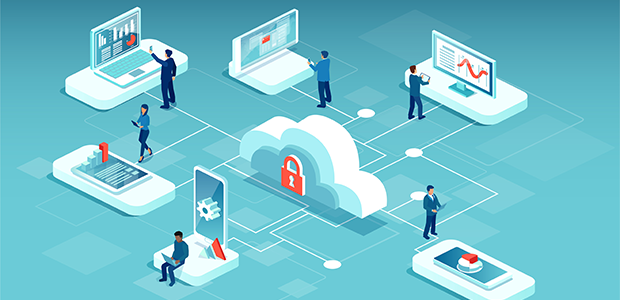
MSPs are responsible for addressing generative AI and cloud cybersecurity concerns
With sophisticated cyberattacks increasing worldwide, operators must account for generative AI and the cloud when adopting a holistic, strategic approach to their security needs. MSPs have a role and responsibility in providing support in their onboarding practices.
Recent analysis from Wipro, a technology services and consulting company, has revealed the need for collaboration to enhance cybersecurity resilience across businesses. Its State of Cybersecurity Report 2023, curated from the responses of 345 security leaders from various organisations, emphasised a need for CISOs to embrace disruptive changes in the cybersecurity landscape and adopt a holistic and strategic approach to cybersecurity that can support their business objectives and enable digital transformation.
Generative AI is set to provide new opportunities and challenges for cybersecurity, and recent research has already explored how the current average time for a threat actor to launch a targeted cloud attack is only ten minutes – five of those being dwell time. Cloud automation allows this attack speed to be hastened. When it comes to more opportunistic attacks, cybercriminals take on average under two minutes to find a publicly exposed credential.
Attackers are evolving their techniques for credential access, privilege escalation, and lateral movement, as identity and access management (IAM) is a crucial cloud security control. In big cloud service provider environments, IAM controls are routinely misconfigured, exposing the attack surface for actors to exploit by an exponential degree.
Mark Appleton, Chief Customer Officer for ALSO UK, believes that MSPs have a responsibility to help their customers establish correct cybersecurity procedures as part of their onboarding package and client offering. “The number one concern when it comes to a cyber breach is data loss, as it ultimately leads to many other business concerns. Businesses may find themselves crippled by even just a single attack, which can ultimately do irreparable damage to their image for years after.
“Personal data is a crucial currency to prevent from being stolen in a cyberattack – its loss to cyber actors can lead to further blackmail and exploitation of company finances, but also reputational loss by losing trust with customers. Cloud-based cyberattacks are only growing in sophistication, and as generative AI grows more advanced it only raises the likelihood of an attack that could potentially disrupt operations.”
Appleton additionally believes that as working environments become more and more cloud-focused, endpoint management is critical to safeguard operations from outside attacks. “Endpoint management will always be a major player in the cybersecurity market, as businesses operate on so many different devices, log-in points and therefore opportunities for malicious actors to gain access. If even one device isn’t synced up with the latest security, businesses are leaving themselves open to attack.
“Whilst businesses need to limit the human error of leaving control to their employees, MSPs should be providing as much onboarding support as they can for their partners to minimise this risk. Consolidating multi-cloud operations can aid in reducing the overall attack surface, limiting the ways in which cyber actors can gain entry into private networks.
“Similarly, ALSO advocates a multi-layered strategy with integrated monitoring and security technologies, to reduce vulnerability and provide strong customer protection. As hackers continue to grow more sophisticated in their attacks, emphasising education and customer awareness about cybersecurity is key.”

